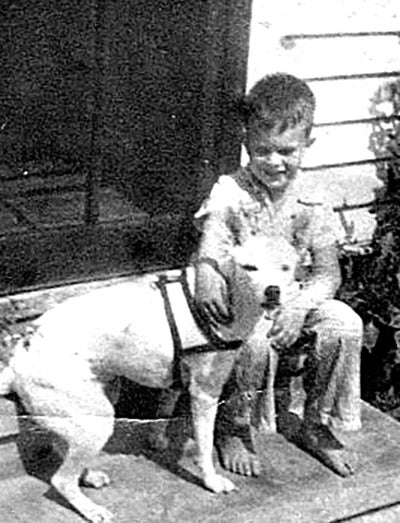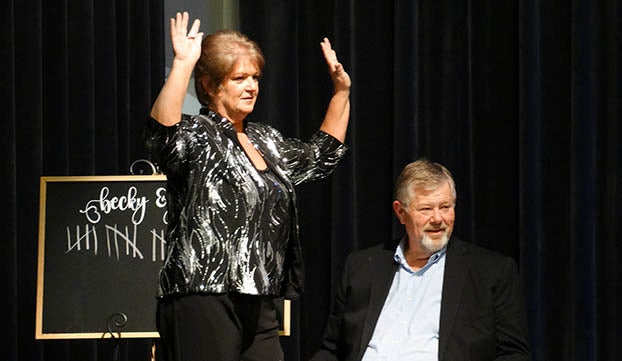And Now You Know: Perkins gets 99 years for White murder
Published 12:37 am Saturday, August 15, 2020
|
Getting your Trinity Audio player ready...
|
The headline (above) announcing the verdict in the Perkins murder trial was one of the largest ever printed by the Orange Leader. The trial of N.E. Perkins for the murder of Orange police officer Will White was the most sensational ever held in Orange.
Perkins had shot White on the night of March 25, 1930. The trial started in early June. After the long trial with numerous witnesses for both sides and ardent arguments by lawyers for both sides, the trial finally went to the jury on June 18 at 6:10 p.m. The jury deliberated through the night and delivered the verdict to the district court at 9:20 a.m. Their verdict was a sentence of 99 years in the state penitentiary.
County Attorney Hollis M. Kinard had asked for the death penalty or a life sentence in his closing argument. Perkins had plead self-defense.
Perkins was described as tall, grey, and grim. His associates had stated he had an “iron nerve.” In court, his lips formed a “mirthless, defiant grin.” He held the grin and puffed on a cigarette as he heard the verdict and heard the jury polled as to each juror’s vote on the verdict.
District Clerk Clark L.F. Branum read the verdict: “We the jury find the defendant N.E. Perkins guilty as charged in the indictment and assess the punishment at 99 years in the penitentiary.”
As the verdict was read, Perkins mopped away with his handkerchief small beads of sweat which formed on his face and head. Once he leaned over and said something to his brother in law, Abbie Griffith.
When he left the courtroom, he had a small smile on his face.
He told a reporter at the counsel table he was not surprised, “I knew they were going to get me, but I thought there may have been a hung jury.”
The jury had been polled at the request of defense attorney R.C. Roland who had “battled doggedly” for a verdict of not guilty.
Roland said he would take the “usual steps” for his client and gave the formal notice of application for a new trial.
County Attorney Kinard said he felt the verdict would stand the test of the higher courts due to the deliberative caution which had been taken and the judicious manner in which the trial judge had handled all matters.
Kinard argued that no one had testified for Perkins “except himself.”
A portion of Kinard’s argument was: “Will White was a peace officer and there is not one mark against him. One of the defense counsels, O.M. Lord took the stand and testified, yet he did not tell you one thing against Will White. Will White went to Perkin’s place while on duty at night. The uniform and badge did not look good to Perkins. They never look good to those who violate the law. Perkins and Leonard Carr were in the house smoking cigarettes and drinking. Perkins was laying on a bed. He testified that White wanted to shoot him. If White wanted to shoot him, why did he not shoot Perkins as Perkins laid on the bed? Why did he let him get up? They had a terrific struggle that went from that bedroom to the kitchen. He said White fired three shots at him as they struggled. He said White was trying to kill him. Why did he not do so? He had plenty of opportunity.”
Perkins said White was drunk. Kinard produced five witnesses who said White had not been drinking. One of the state’s witnesses was Vertis Berwick who said White had taken him home only a short while before the crime was committed and that White had not been drinking.
Perkins testified that White had been facing him. Perkins said that he had shot White in self-defense.
The state produced evidence that White had been shot once in the back and once in the front of his body. His body was found 12 to 15 feet from where the blood on the floor started.
“A shot in the back proves it was not self-defense”, Kinard argued.
Defense counsel tried to produce evidence that contradicted the state’s arguments but were not able to do so as the jury’s verdict proved.
Even though he was not able to get the death sentence, Kinard said he was satisfied with the sentence the jury gave Perkins.
District Judge Richardson thanked the jury for their service and said he knew they had been through an ordeal.
“And now you know.”







